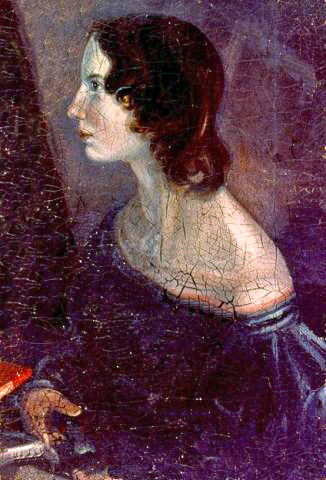 |
| Anne Carson [Marta Spendowska] |
from Anne Carson’s “The Glass Essay” from Glass, Irony and God:
“Emily
is in the parlor brushing the carpet,”
records
Charlotte in 1828.
Unsociable
even at home
and
unable to meet the eyes of strangers when she ventured out,
Emily
made her awkward way
across
days and years whose bareness appalls her biographers.
This
sad stunted life, says one.
Uninteresting,
unremarkable, wracked by disappointment
and
despair, says another.
She
could have been a great navigator if she’d been male,
suggests
a third. Meanwhile
Emily
continued to brush into the carpet the question,
Why
cast the world away.
For
someone hooked up to Thou,
the
world may have seemed a kind of half-finished sentence.
But in
between the neighbour who recalls her
coming
in from a walk on the moors
with
her face “lit up by a divine light”
and
the sister who tells us
Emily
never made a friend in her life,
is a
space where the little raw soul
slips
through.
It
goes skimming the deep keel like a storm petrel,
out of
sight.
The
little raw soul was caught by no one.
She
didn’t have friends, children, sex, religion, marriage, success, a
salary
or a
fear of death. She worked
in
total six months of her life (at a school in Halifax)
and
died on the sofa at home at 2 P.M. on a winter afternoon
in her
thirty-first year. She spent
most
of the hours of her life brushing the carpet,
walking
the moor
or
whaching. She says
it
gave her peace.
 |
| Emily Brontë [Branwell Brontë] |
No comments:
Post a Comment